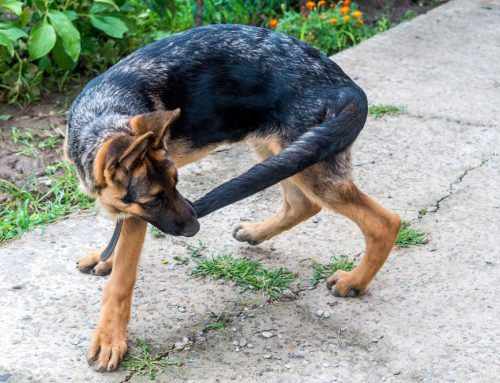Don’t wait for a disaster, plan ahead! Get familiar with the types of disasters that may happen (power failure, earthquake, flood, fire, hazardous material spill, volcanic eruption) and make a plan of action.
Keep your pets safe in any type of emergency. A small room away from windows and with a tile floor, like a utility room or bathroom is good for smaller pets. If it becomes necessary to leave your home, decide on a location to take your pet. Contact boarding kennels, veterinary clinics, friends or relatives, and motels that take pets.
Plan several routes of escape. If you have a stock trailer or pickup with livestock racks, keep them serviced and always keep the gas tank at least half full. For smaller animals, have leashes or pet carriers or portable kennels on hand for each pet. Familiarize your pet with the carrier.
Be sure all animals have some form of identification, such as an ear tag, microchip, license, collar ID tag, etc. Be sure tags include your name, animal’s name, address and phone number.
Take a picture of your pet and make note of its markings.
Have copies of your pet’s immunization records and registration records if appropriate.
Keep an emergency supply of feed, medications, and clean water. Plan for 5-7 days’ worth, 2 weeks is ideal. Include items to handle pet wastes such as newspapers, plastic bags, and cleansers.
After the disaster
Be careful allowing your pets outdoors. Severe weather can alter scents and landmarks, and your pet could become confused and lost. Dangers could also be present such as downed power lines and wild animals.
If your pet is lost, contact local veterinary clinics, kennels, and humane societies. If you find a pet, contact your local humane society or any emergency numbers that have been set up during the disaster.
For more information visit the Whatcom County Division of Emergency Management














Leave A Comment